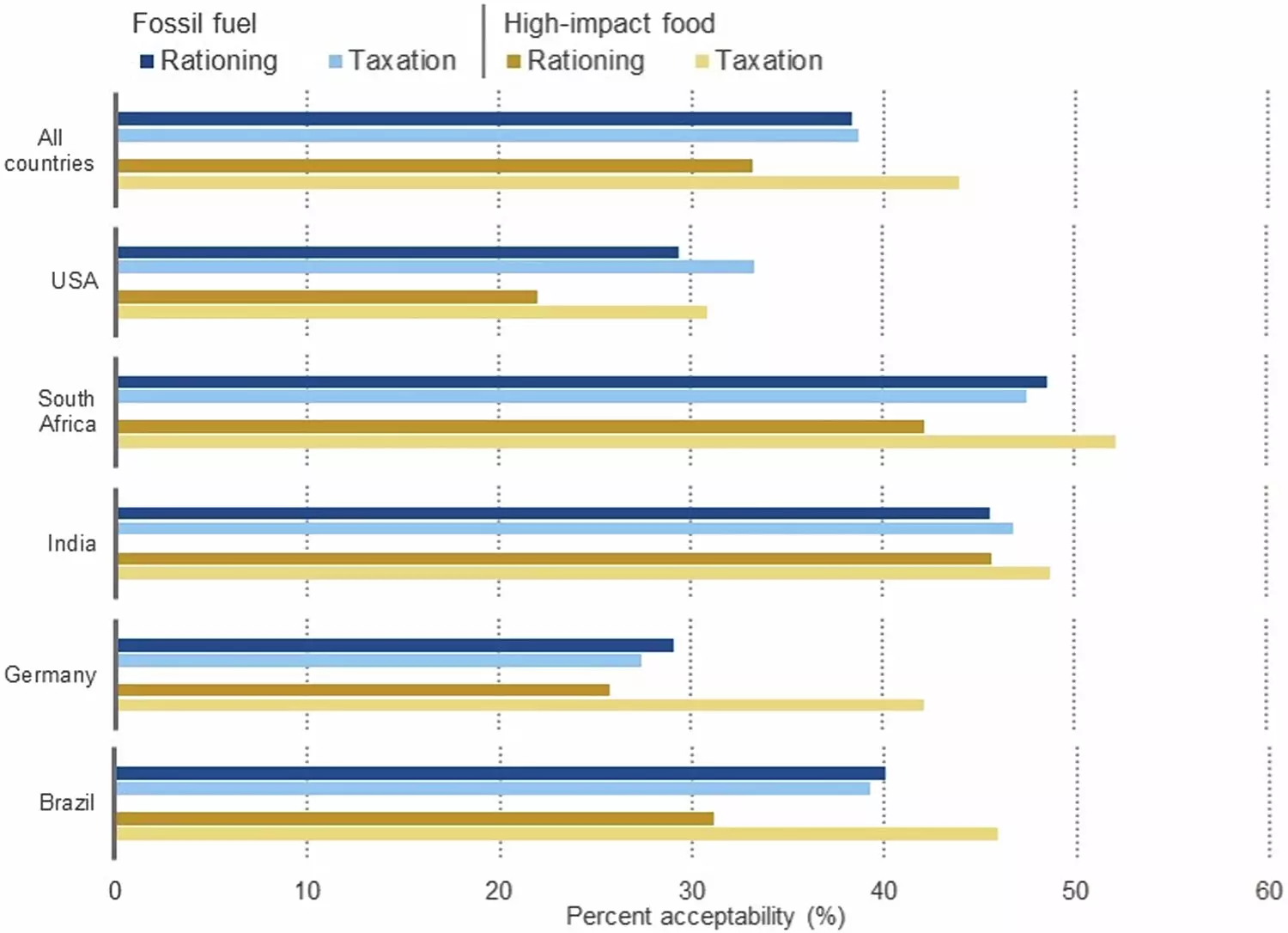As the world grapples with the alarming impacts of climate change, innovative solutions are needed to address high consumption rates of emission-intensive goods. Recent research conducted by the Climate Change Leadership Group at Uppsala University uncovers a fascinating public sentiment regarding rationing of essential resources such as fuel and meat. In this era of environmental urgency, it is essential to recognize that the concept of rationing, often seen as radical, may actually resonate with a significant portion of the population. Nearly 40% of participants in the study expressed willingness to accept rationing as a viable measure to combat climate change.
Rationing measures have traditionally been associated with wartime economies, typically perceived as a last resort for resource management. Nonetheless, the insights provided by this recent research illustrate a paradigm shift in public opinion. The urgency of the climate crisis could catalyze support for measures that may initially seem extreme or draconian. As Oskar Lindgren, the lead researcher, points out, policies perceived as equitable tend to gain greater acceptance. This raises an important question about how we frame and present climate policies to the public.
The perception of fairness plays a critical role in determining the acceptability of various climate policies. Rationing, when implemented equitably regardless of income, can foster a sense of shared responsibility among citizens. This principle of equality can enhance public support, as individuals may perceive it as a collective effort to combat a shared threat. The Uppsala study highlights this intricate relationship between fairness and policy acceptance, suggesting that for any climate strategy, accounting for social equity can bolster effectiveness.
Interestingly, the approach contrasts starkly with economic tools like carbon taxes, which have faced considerable backlash across different demographics. The research covered in the study surveyed nearly 9,000 individuals from Brazil, India, Germany, South Africa, and the United States, comparing levels of support for both rationing and taxation of high-impact goods. The results revealed that the acceptance levels for rationing and taxation were surprisingly comparable, with slight variations among the countries surveyed.
In fact, the finding that about 38% of respondents supported fuel rationing, compared to 39% for fuel taxes, challenges the traditional belief that taxation is a more palatable option. This suggests that, given effective administration, rationing may not evoke as much public resistance as initially believed, paving the way for further exploration of its potential role in climate policy frameworks.
The study also casts a spotlight on geographical disparities regarding the acceptability of rationing measures. Notably, Indian and South African respondents displayed a greater willingness to accept rationing compared to their peers in Germany and the United States, who largely opposed meat rationing. This regional variance in acceptance could stem from different cultural attitudes, economic statuses, and levels of climate awareness.
Individuals expressing a strong concern for climate change were more inclined to favor rationing, along with younger and more educated respondents. This implies that as societies evolve and climate education becomes more critical, public attitudes towards rigid measures such as rationing may become more favorable. Social dynamics, perceptions of climate change severity, and educational initiatives will be pivotal in shaping the future of rationing as a policy tool in climate mitigation.
Charting a Path Forward
As we move forward, it is crucial that governments and policymakers delve deeper into public attitudes toward rationing and explore its practical applications. The current research presents an encouraging outlook, suggesting that a considerable segment of the population is willing to embrace personal consumption limits for the broader goal of climate mitigation, particularly when such measures are perceived to be fair and equitable.
The exploration of rationing as a means to combat climate change could open new avenues in policy development. The findings from Uppsala University underscore the importance of public discourse around these issues, suggesting that with transparent communication, social equity, and appropriate design, rationing may become an accepted strategy in the global fight against climate change.


Leave a Reply